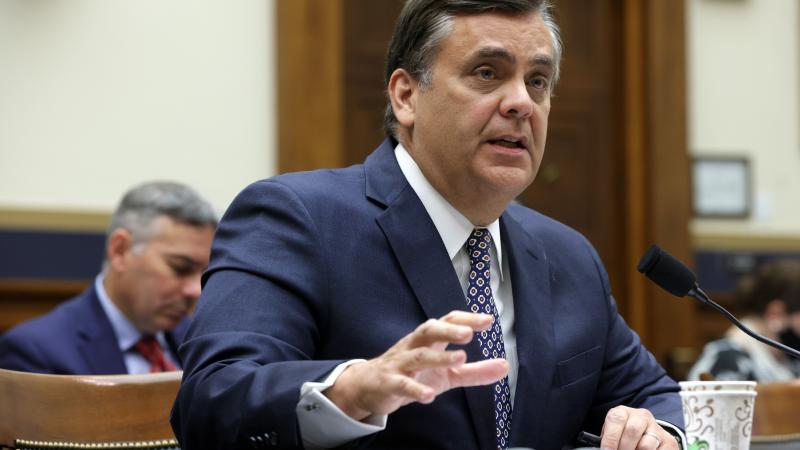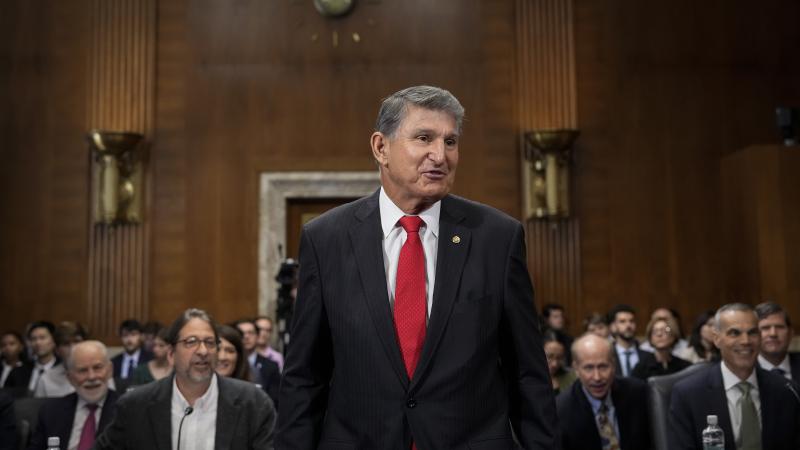NIH division spends $413,000 to study effect of climate change on mental health of the young
"If elected officials and bureaucrats are concerned about producing anxiety, perhaps they should also consider letting up on their unrelenting alarmism," advised federal spending watchdog Adam Andrzejewski.
The Golden Horseshoe is a weekly designation from Just The News intended to highlight egregious examples of wasteful taxpayer spending by the government. The award is named for the horseshoe-shaped toilet seats for military airplanes that cost the Pentagon a whopping $640 each back in the 1980s.
This week's Golden Horseshoe is awarded to the National Institute of Environmental Health Sciences for spending approximately $413,000 to study the adverse impact climate change is purportedly having on the mental health of young people.
The NIEHS, a division of the National Institutes of Health, awarded $413,598 to researchers at Appalachian State University in North Carolina this year to conduct the study.
"Despite the frequency of climate-related natural disasters, like hurricanes, wildfires, and heatwaves, little is known about their effects on mental health in this group," according to the project description's "public health relevance statement."
"New research recognizes the role that environmental factors sensitive to climate change and variability (e.g., increasing temperatures, heat waves) may play in the complex pathway linking environmental exposures and negative mental health and well-being outcomes" among the young, stipulates the proposed Causal Analysis of the Complex Mental Health Impacts of the Climate Crisis in Young People.
Despite "a recent survey showing 7 out of 10 young people are worried about their future in the context of these planetary changes," the project abstract claims, "Few studies have fully examined climate- mental health on a national level to determine which types or combinations of climate events (extreme heat, hurricanes, extreme heat in the context of a hurricane) are connected to mental health consequences in young people."
The "overarching goal of the research is to comprehensively examine the sensitivity of mental health impacts to climate disasters in youth, as well as the compounding and cascading effect of concurrent extreme events across the U.S.," according to the project description.
The researchers plan to leverage their relationship with the global nonprofit organization Crisis Text Line to assess these psychological effects on the target demographic.
The crisis service will provide researchers with data on people who seek "mental health help in response to extreme climate events of hurricanes, wildfires, and heatwaves," wrote OpenTheBooks.com CEO and founder Adam Andrzejewski at RealClear Policy.
There project sets three goals for the research:
- "Examine the local spatiotemporal patterns of help-seeking for mental health in response to three extreme climate events — hurricanes, wildfires, and heatwaves — and how crisis response varies by event-type and in the acute and chronic phases."
- "Identify the individual and community-level social and environmental factors that promote mental health resilience in youth impacted by a climate disaster."
- "Compare the compounding effect of concurrent extreme events on longitudinal changes in youth mental health."
"This is a waste of taxpayer dollars primarily because we already know how to manage mental health and wellness," Andrzejewski told Just The News. "People who suffer from anxiety should seek counsel with a licensed professional who can provide them with talk therapy and determine the best course of treatment for their individual case. If climate change is a new factor contributing to disorders, the solutions or mitigating actions remain the same.
"Short of halting climate change or eliminating all significant weather events, there's not much our tax dollars can tell us other than: Seek care in consultation with your doctor."
Elected officials should also consider the effects of their own climate change "rhetoric," Andrzejewski advised.
"If elected officials and bureaucrats are concerned about producing anxiety, perhaps they should also consider letting up on their unrelenting alarmism," he said. "That rhetoric is what turns a rough patch of weather into the latest sign of a global calamity."
This may be the first in a wave of research grants related to climate change and mental well-being, Andrzejewski warns.
"This study was prompted in part by a public survey, so in a way, the pump was already primed to identify a connection here," he explained. "Frequently, when the government chooses a project to back, it continues funding the ancillary research, sometimes for many years."
The NIEHS did not respond to a request for comment for this story.
















